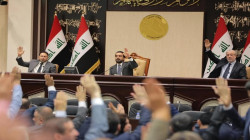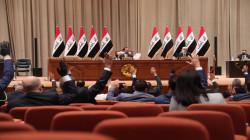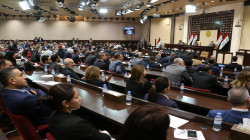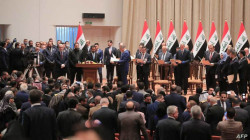Civil war might follow the US. troops departure, MP warns
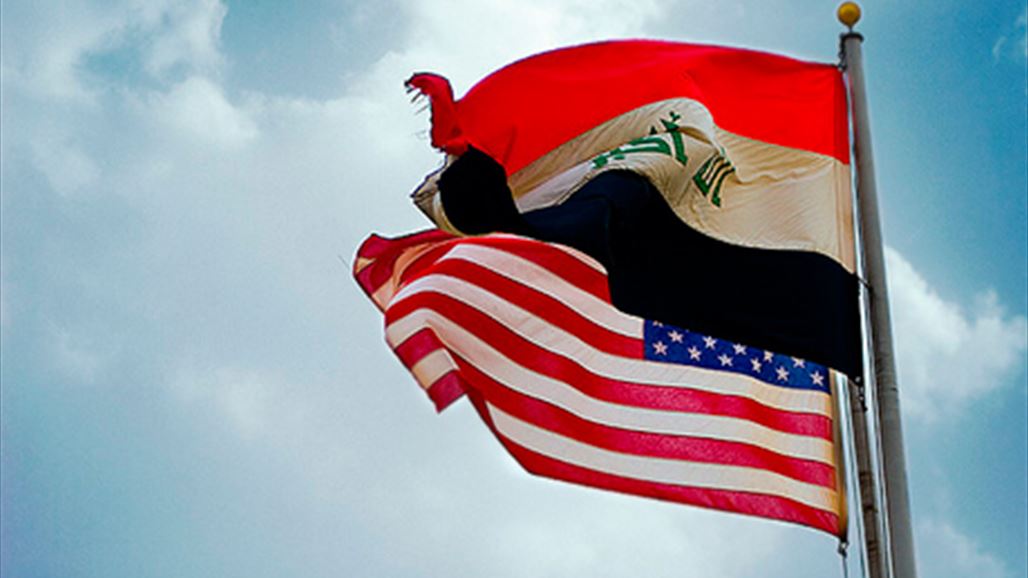
In a statement to Shafaq News Agency, MP Jamal Kuchar said, "following the U.S. withdrawal, the scenario of Taliban in Afghanistan will take place in Iraq. Armed militias with better equipment and enforcement than the Iraqi forces will expand, mainly in the territories of the Federal Government and the disputed territories between Baghdad and Erbil."
"If any of this happens, we will be heading to a brutal war similar to the war against ISIS or an internal civil war," he continued.
The parliamentarian urged the decision makers in the country to account for every step that accompanies the U.S. forces departure.
Shiite forces are adamant about the exit of the foreign forces from Iraq. On the other hand, Sunni and Kurdish forces have some reservations. The polarity brings back the scene of the Parliament's vote upon the departure of the U.S. troops from the country early on 2020 shortly after the assassination of the Commander of the Iranian "Quds" force, Major-General Qassem Soleimani, and the Deputy Commander of al-Hashd al-Shaabi (Popular Mobilization Forces-PMF), Abu Mahdi al-Muhandis by a U.S. Aerial attack near the Baghdad International Airport.
U.S. and Iraqi officials are finalizing a shift in the U.S. military mission in Iraq to a purely advisory role by the end of the year, marking the official end of the U.S. combat mission in the country, according to a U.S. official and two people familiar with the issue.
Officials plan to announce this shift on Monday after Iraqi Prime Minister Mustafa al-Kadhimi meets with President Joe Biden at the White House, according to one of the people familiar with the discussions.
Under the plan, which the people stressed will not constitute a withdrawal of American forces from the country, a number of U.S. service members will remain in Iraq indefinitely. These troops will provide logistics and advisory support, as well as air power, intelligence and surveillance capability in the fight against the Islamic State, which this week claimed responsibility for a suicide attack in Baghdad that left dozens dead.
The announcement will mark the culmination of a number of strategic dialogues between Iraq and U.S. officials over the American military presence in Iraq over the last few years, the person said. While the overall numbers likely won’t change much -- there are roughly 2,500 U.S. troops in Iraq today -- the remaining combat forces will likely redeploy, replaced with personnel focused on the advisory mission, between now and the end of the year.
The change, which is being discussed as U.S. and Iraqi officials met Thursday at the Pentagon, will mark yet another shift for the U.S. military presence in Iraq, where the United States has deployed troops for most of the last 18 years.
Al-Kadhimi previewed the announcement in a recent interview, saying that Iraq no longer has a need for U.S. combat troops.
Iraqis are now ready to stand up on their feet and protect themselves. We are no longer in need of U.S. combat troops,” Kadhimi told Washington Post columnist David Ignatius. “At the same time, we will continue to need intelligence support, training, capacity building and advice.”
Pentagon spokesperson John Kirby said in a statement to POLITICO that the meetings at the ministerial level "will reflect the breadth of this partnership and the importance with which the Biden administration views Iraq as a fulcrum for stability in the Middle East. We anticipate a number of deliverables to be announced in these areas at the close of the visit.”
The Biden administration’s approach to the conflict in Iraq stands in sharp contrast with the situation in Afghanistan, as America winds down its longest war. In Iraq, U.S. and Iraqi officials are seeking a long-term military partnership; in Afghanistan, all U.S. troops are expected to leave by Aug. 31, aside from roughly 600 who will remain to help secure the U.S. embassy and the Kabul airport.
But officials say the situation in Iraq is different. The Pentagon has trained hundreds of thousands of Iraqis in recent years who have led the fight against the Islamic State, with the U.S. military providing air support and intelligence when needed. Iraqi special forces are some of the most-capable and battle-tested in the region, officials say, and played a leading role in defeating the ISIS caliphate in 2019. In Afghanistan, by contrast, the Taliban have made steady gains for years, and the Trump administration’s 2020 peace deal with the group made the pullout all but inevitable, officials say.
Kadhimi is in the tricky position of trying to balance pressure from Iranian-linked political factions within his government that want American forces out entirely, and Iraq’s ongoing need for critical U.S. military support to continue fighting terrorists. Adding another layer of complexity to Kadhimi’s dilemma, Iranian-backed militia groups are relentlessly targeting U.S. and Iraqi troops in the country with drone and rocket attacks.
While the change on the ground would be subtle, official recognition of the shift in mission could be portrayed as a political win for Kadhimi ahead of parliamentary elections scheduled for October.
The U.S. military has been gradually transitioning to an advisory role in Iraq since summer 2020, when American and Iraqi officials agreed in a series of communiques to reduce U.S. combat forces in the country.
In fact, in an April 7 joint statement, officials proclaimed that due to the increasing capacity of the Iraqi Security Forces, “the mission of U.S. and Coalition forces has now transitioned to one focused on training and advisory tasks, thereby allowing for the redeployment of any remaining combat forces from Iraq, with the timing to be established in upcoming technical talks.”
The announcement next week will officially put an end date on the transition. But the sources stressed that a withdrawal of U.S. troops in the near future is not being seriously discussed.
The U.S. military has maintained a steady presence in Iraq since 2014 under Operation Inherent Resolve, which saw American troops return to the country due to the rise of the Islamic State. But Iraq became the proxy battleground for a tit-for-tat conflict between Washington and Tehran in 2019 following then-President Donald Trump’s withdrawal from the Iran nuclear deal and reimposition of sanctions the previous year.
The conflict crescendoed in America’s Jan. 3 assassination of Iranian Maj. Gen. Qassem Soleimani in Baghdad, which led the Iraqi Council of Representatives two days later to approve a nonbinding resolution calling for the end of the U.S. military presence in Iraq. That fall, the Pentagon formally announced a plan to reduce the U.S. military presence in Iraq by more than a third, from 5,200 to 3,000; by January 2021, the Trump administration had reduced that number to 2,500.
Still, the attacks on U.S. troops in Iraq continue, and have increased in recent weeks despite retaliatory U.S. airstrikes in February and June. In just one week in early July, U.S. troops and diplomats in Iraq and Syria were targeted in six rocket and drone attacks.


